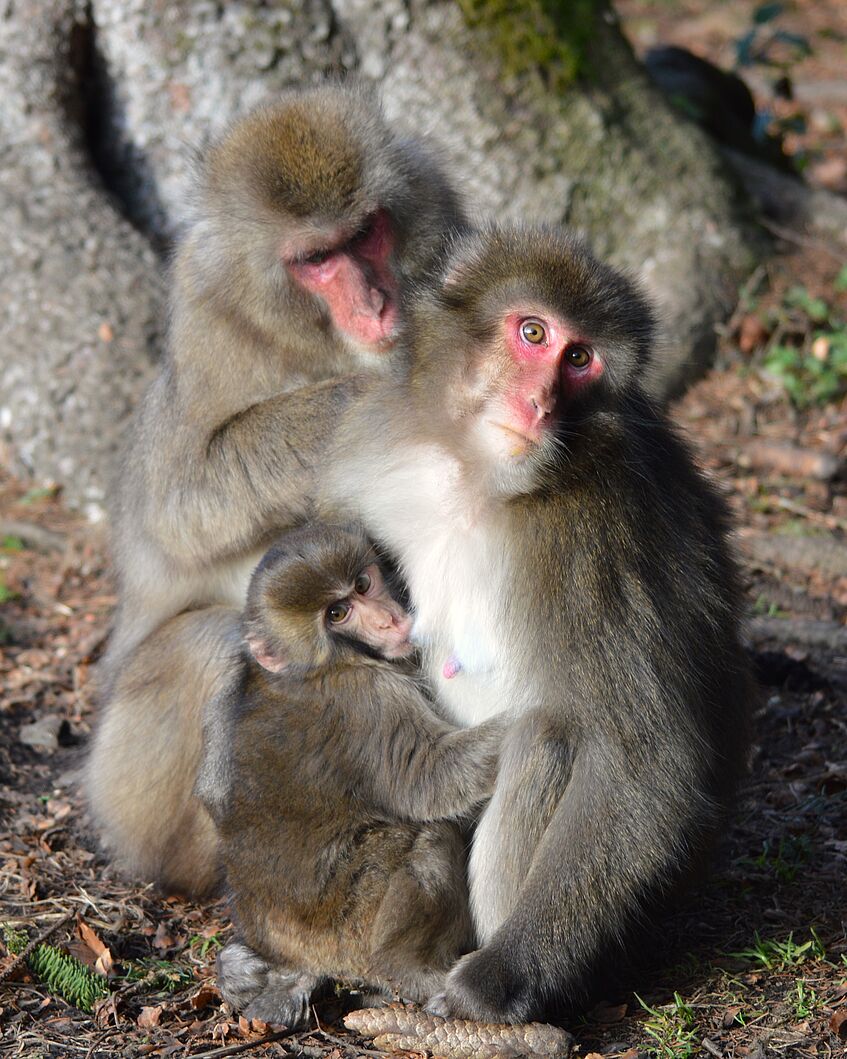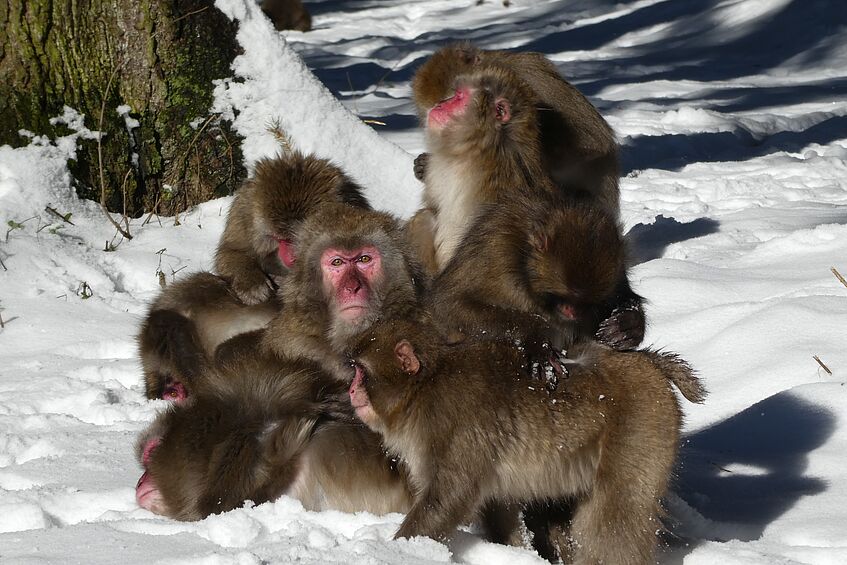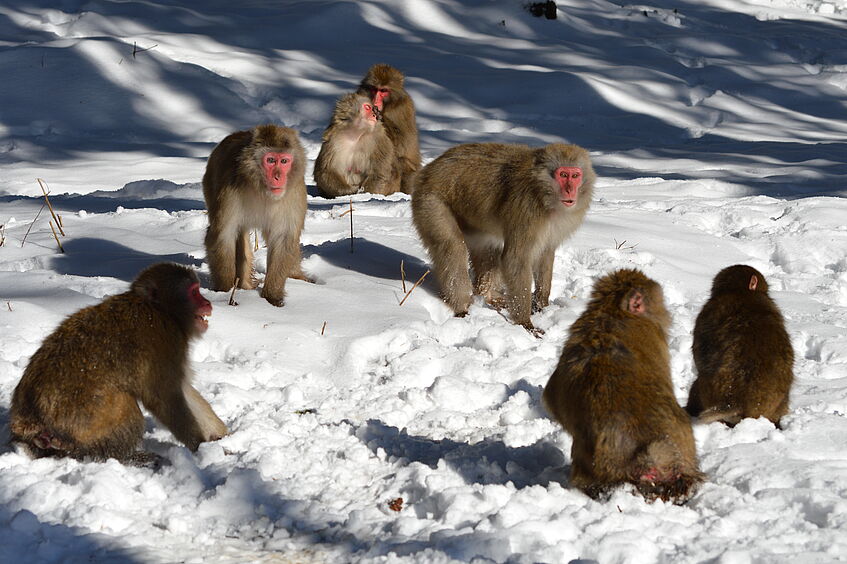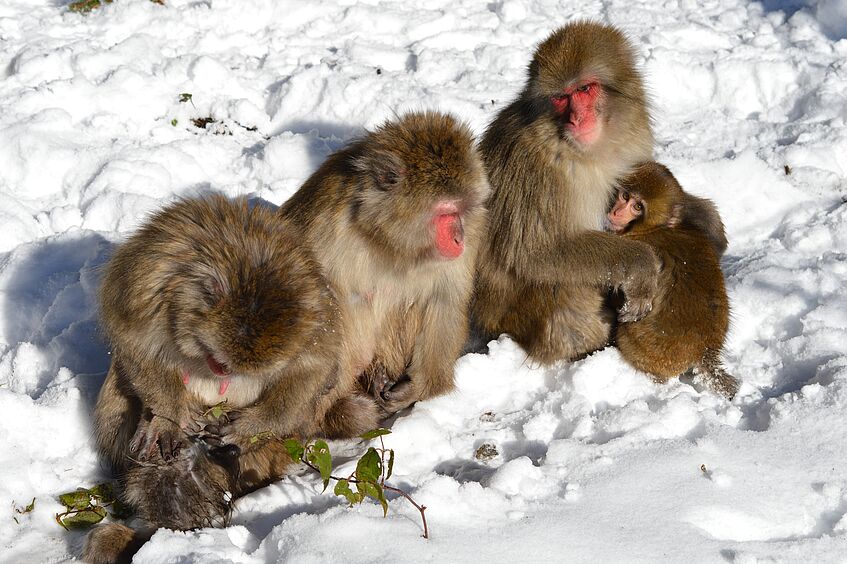Female-family business
Project Details
Principal Investigator: Lena Pflüger, PhD and FH-Prof. Dr. Gernot Paulus
PhD Candidate: Roy Hammer, MSc
Funding: FFG
Programme: Bridge
Project Duration: 2023 - 2026
Project Number: FO999898920
Part of the Smart Monkey Lab

© Angela Stojan
Research Objective
Japanese macaques live in large multi-male, multi-female groups where males leave their natal group when reaching sexual maturity, but females stay with their female relatives for their entire lives. According to literature, the social network of a female Japanese macaques must therefore primarily exist of social connections to their female relatives. Moreover, Japanese macaques have a very strict dominance hierarchy that is separated for males and females. The female hierarchy is based on relatedness as well. Females inherit the rank of their mothers, which indicates that all relatives within a female family (also known as matriline) have the same rank. On a populational level, it is expected that the bigger the matriline, the higher the rank of the matriline. However, our preliminary observations at the Affenberg contradict these assumptions. We observed that the social network of females can also consist of mainly non-relatives, and that smaller matrilines can outrank larger families. This is why we study the female social behaviour in more detail to see what influences the social network formation and matrilineal rank determination of female Japanese macaques.
Research Questions
What influences the formation of non-kin social relationships between females?
How can matrilineal rank be determined reliably and validly?
What causes individual females to outrank their relatives?
What causes rank reversals in the matrilineal dominance hierarchy?

© Roy Hammer

© Angela Stojan

© Angela Stojan
Team
Roy Hammer, MSc, University of Vienna
Lena Pflüger, PhD, University of Vienna
Prof. Dr. Bernard Wallner, University of Vienna
Prof. Dr. Michael Huffman, Nagasaki University
Students and researchers of the Affenberg Research Station
Contact
Roy Hammer, MSc
Email: roy.hammer[at]univie.ac.at
